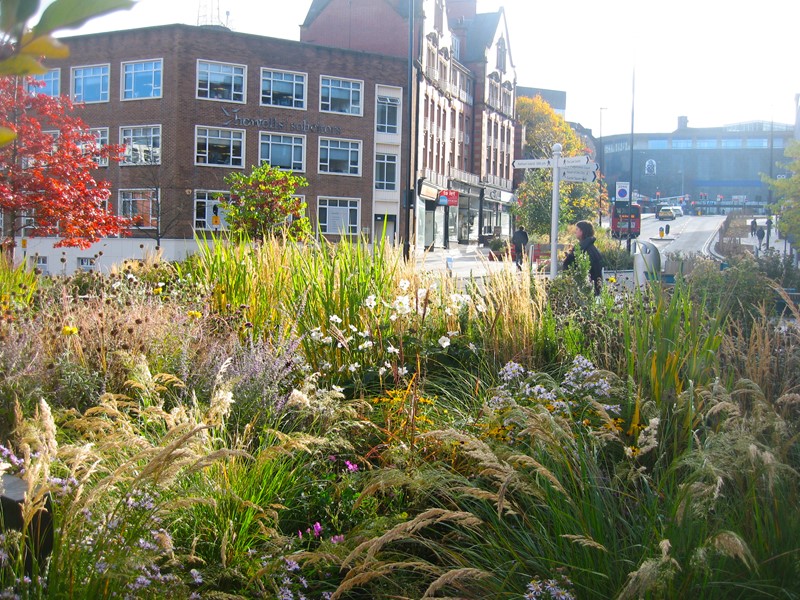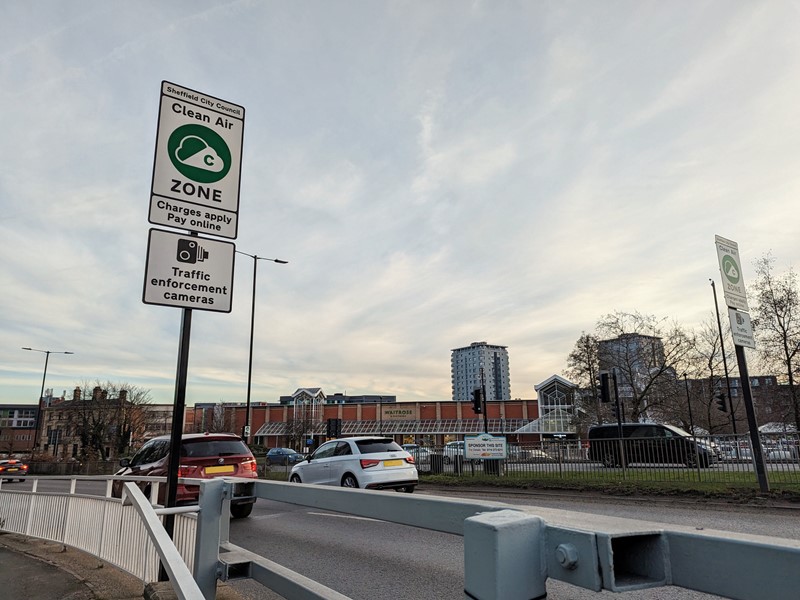Our first climate summit invites the people of Sheffield to help us focus on building back better from the pandemic and how we can work towards our Zero Carbon target.
The first step on Sheffield’s journey to zero carbon

After declaring a climate emergency in 2019, Sheffield will take a major step towards this goal by releasing a new report which details where carbon emissions can be reduced in the city. Carbon emissions are the biggest contributor towards climate change and primarily come from burning fossil fuels such as petrol, diesel and natural gas.
The report has been developed over the last 9 months by Arup and Ricardo, in partnership with the Sheffield City Council and the Green City Partnership Board, a group of local stakeholders with representatives from local businesses, Sheffield Chamber of Commerce, both universities and campaign groups including the Sheffield Climate Alliance.
Sheffield’s emissions are currently above 2,000 kilotons of CO2 a year and the report shows how this can be reduced by 85% to 334 kilotons by 2030. The evidence in the report shows that some of the biggest decarbonisation gains are to be made by swapping petrol and diesel to electric vehicles and replacing gas boilers with zero-carbon alternatives such as heat pumps to heat our homes and businesses. Significant gains can also be made by improving the energy efficiency of buildings so less energy is wasted through heat loss.
Cllr Mark Jones, Cabinet Member for Environment and Streetscene said:
“The evidence in this report shows reaching carbon zero will be a challenge. The council needs to take the lead - but it’s clear that everyone will have to make big changes. There are big benefits to be had - better transport, more efficient heating for our homes, and investment in green spaces.
“Getting to carbon zero would mean more local jobs to improve the fabric of the city – in areas such as upgrading heating systems in houses and businesses, as well as an overdue investment in our transport networks”.
“We’ve also started investing in the council’s own sites, with improvements made saving 1880 tonnes of CO2 annually. Our fleets are converting to electric rather than diesel vans, and will replace our existing diesel fleet with electric or ultra-low emissions vehicles over the next 6 years”
Cllr Bob Johnson, Leader of Sheffield City Council said:
“Taking action to significantly reduce carbon emissions across the city isn’t something we can do alone. We need the support of Government and the Sheffield City Region, and most importantly from the people in Sheffield. We want to use the key findings from this evidence and work with residents, businesses and organisations in Sheffield in finalising the actions that need to be delivered. It’s important that people in the city are included in this planning process - we need a conversation where everyone’s voices can be heard.”
“Given the scale of the challenge, at the same time as developing these plans, we will also continue to take action and seek additional funding from Government. During my time as Cabinet Member for Transport and Development, we made a start in transforming cycling and public transport routes, announced projects for free trials of electric taxis and vans for local businesses, and installed 22 new electric rapid charging points. We are also incorporating our changes into our regeneration projects, including Sheffield’s Heart of the City development, which features a flagship ‘net zero carbon ready’ office building.”
Craig Gamble Pugh, Co-chair of Sheffield Climate Alliance said
“SCA welcomes this significant, thorough and realistic piece of work. We particularly welcome the emphasis on quickly getting on with actions we know for sure will make a difference. Taking action on our carbon emissions will help to make Sheffield a fairer, healthier and greener place to live in. Improving our homes to make them warmer and cheaper to run is a good example of this. Now we need to develop strong partnerships across the city to make this plan happen - and we are looking to the Council to provide leadership.’
Andy Sheppard, Arup’s Lead Sustainability Expert in the North West and Yorkshire said: “Climate change impacts everyone and we all have to play our part in order to reach net-zero. Employing city-wide solutions, driven by strong leadership, will enable Sheffield to make impactful emissions reductions and ingrain climate action into daily life. This report fires the starting gun for coordinated, comprehensive and continuous action on Sheffield’s journey to carbon neutrality.”
Tom Sutton, Head of Policy & Representation of Sheffield Chamber said:
“This report forms a significant first step towards Sheffield’s zero carbon future and the Chamber of Commerce stands ready to help our businesses navigate the tasks ahead. In 2021, we will be launching our Low Carbon and Sustainable Business Hub. The Hub will provide a place to share knowledge, experience and insights with a range of businesses from all sectors and all sizes.”
2021 will see Glasgow hosting the COP26 climate change conference which seeks to drive the Paris agreement forward.



